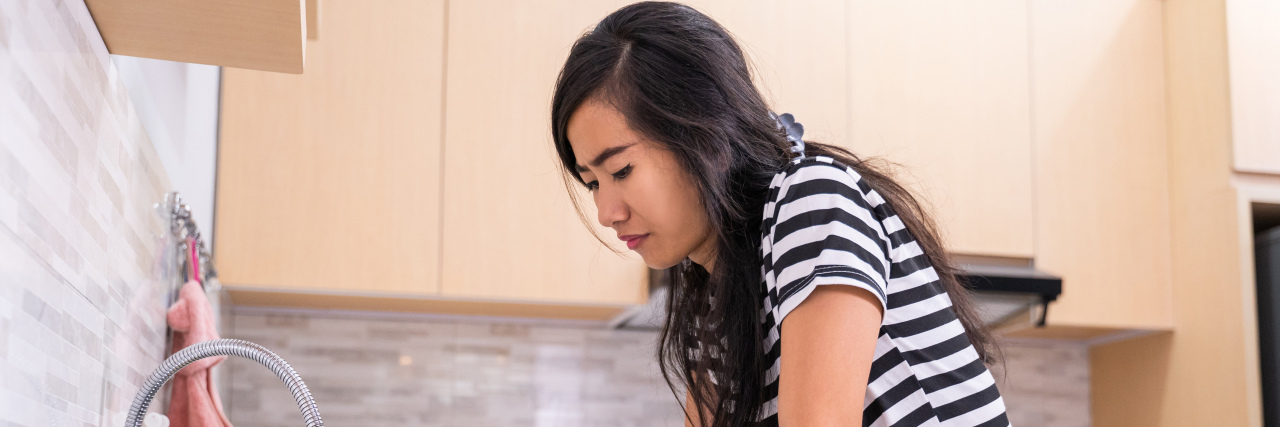The word “can’t” isn’t in my vocabulary – but it should be.
I get told I’m negative when I say I don’t think I can do something, and get called self-destructive when I push to do something others say I’m not able to do.
- What is Fibromyalgia?
- What Are Common Fibromyalgia Symptoms?
But the reality of living alone with chronic illness is there are a lot of things I can’t do, things that most people my age take for granted.
On bad days, I can’t go anywhere by myself, because I can’t carry my own walker up and down the steps of my non-accessible apartment. Not to mention go through doors with it, or try to find accessible entrances when moving at all is painful, or struggling to lift it up the cracked and deformed slopes that are excuses for ramps in many places around my city.
Frequently, I can’t drive, which impacts every aspect of my life especially since I can’t handle public transport either. This means I can’t get to my doctors’ appointments, can’t get to my writers’ groups, can’t get to be a part of the society around me.
Even on good days, there are lots of things I can’t do. I can’t comfortably lift anything more than five pounds, which makes shopping and stocking my apartment a nightmare. I can’t expend a lot of energy, which means a simple chore can wipe me out for the entire day. I can’t get to things that are under the couch or my little folding table in the bedroom, because bending over is so painful.
But I do anyway. I drive when I really shouldn’t, or I bend over backwards to get rides. I lug things I know will hurt my back and force myself to do chores that I know will leave me exhausted. I stumble around when I should stay in bed because I need to live with people in the world, and not just alone in my little apartment.
I have to do things I can’t do, because I have no other options.
If I can’t get to the doctor, but I must get treated, then “can’t” will only make me sicker.
If I can’t do my dishes, but I need to eat, then “can’t” isn’t a word that will keep me fed.
If I can’t go somewhere alone, but I’m about to explode from isolation, then “can’t” is the obstacle I have to overcome.
I wish I was privileged enough that I could afford the luxury of keeping the word “can’t” in my vocabulary, but as someone living alone with a chronic illness, I’m not.

